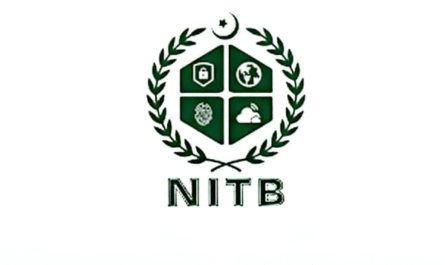In a groundbreaking move toward digital governance, the Punjab government has announced that traffic challans and fine notifications will now be sent directly to citizens through WhatsApp. This initiative, introduced by the Punjab Safe Cities Authority (PSCA) in collaboration with the Traffic Police, is aimed at simplifying traffic management, improving transparency, and reducing the hassle of traditional paper-based challans.
The announcement has generated widespread interest among drivers and commuters, as it represents a major shift toward the use of digital technology in day-to-day public services.
Why the Shift to WhatsApp?
For years, traffic violators have been issued challans in physical form. However, this system came with numerous challenges: misplaced challans, delays in delivery, or lack of awareness about pending fines often led to further complications. In many cases, drivers were unaware of their violations until they faced difficulties during vehicle registration renewals or at police checkpoints.
By integrating WhatsApp into the traffic management system, the government seeks to:
- Ensure Instant Delivery: Drivers will receive notifications within minutes of committing a violation.
- Increase Transparency: Citizens will get photographic or video evidence of violations where applicable.
- Save Time and Costs: No more physical delivery of challans or manual record-keeping.
- Promote Paperless Governance: Aligning with the province’s vision for e-governance and eco-friendly practices.
How the System Will Work
The new system has been designed to be user-friendly, ensuring that all drivers—regardless of age or tech-savviness—can access their challans easily. Here’s how it will work:
- Violation Detection
Traffic violations, such as overspeeding, signal jumping, or lane violations, are detected through the smart surveillance cameras installed by the Punjab Safe Cities Authority. - Automated Challan Generation
Once a violation is confirmed, an electronic challan is generated, including details like the vehicle number, violation type, date, time, and location. - WhatsApp Notification
The challan is then sent directly to the registered mobile number of the vehicle owner via WhatsApp. The message will include:- Details of the violation
- Fine amount
- Due date for payment
- A link or QR code for online payment
- Payment Options
Citizens can pay fines digitally through mobile banking apps, e-wallets, or designated payment platforms. This eliminates the need to stand in long queues at banks or traffic offices.
Benefits for Citizens
The decision to deliver traffic fines via WhatsApp comes with several advantages for the general public:
- Convenience: Drivers no longer need to wait for physical challans to arrive by post or track them manually.
- Timely Alerts: Instant notifications reduce the chances of missing payment deadlines.
- Evidence-Based Transparency: Many challans will be accompanied by evidence, reducing disputes between citizens and authorities.
- Accessibility: WhatsApp is widely used in Pakistan, making it the perfect medium for such notifications.
- Reduced Corruption: With direct digital records, the chances of manipulation or bribery are minimized.
Concerns and Challenges
While the initiative has been largely welcomed, there are concerns that must be addressed for smooth implementation:
- Data Accuracy
The system depends on accurate linking of vehicle registration numbers with updated mobile numbers. If records are outdated, notifications may not reach the right person. - Digital Divide
Not all citizens—particularly in rural areas—may be familiar with WhatsApp or have access to smartphones. This could limit the effectiveness of the initiative in certain regions. - Privacy Issues
Sharing personal data and challan information over WhatsApp raises questions about data security and confidentiality. The government must ensure end-to-end encryption and protect against misuse. - Dispute Resolution
In cases where citizens disagree with the violation, there needs to be a clear and accessible mechanism for appeals or complaint submissions.
Public Reaction
The news has gone viral on social media, with many citizens praising the step as a much-needed modernization of Pakistan’s traffic system. WhatsApp, being the most widely used communication app in the country, ensures that notifications will reach a majority of people instantly.
However, some drivers have expressed skepticism, worried about whether the system will function smoothly or create new problems. Others fear that wrong challans might be sent due to technical errors in camera detection.
Despite these concerns, the overall response remains positive, with many seeing it as a step toward a “smart city” future for Punjab.
Government’s Vision
Officials from the Punjab Safe Cities Authority have stated that the initiative is part of a broader plan to digitize public services. The ultimate goal is to create a smart traffic management system where citizens can manage all their traffic-related needs online—whether it’s checking challan history, paying fines, or applying for permits.
Additionally, the government hopes this move will encourage safer driving habits. With the knowledge that violations will be instantly recorded and notified, drivers may become more cautious and disciplined on the road.
What Citizens Should Do
To benefit from this new system, vehicle owners should take a few steps:
- Update Mobile Numbers: Ensure that your mobile number is correctly registered with the Excise and Taxation Department.
- Keep WhatsApp Active: Since notifications will arrive on WhatsApp, drivers must have the app installed and regularly updated.
- Check for Pending Fines: Citizens can also check their challan history through official online portals.
- Pay on Time: Use digital payment methods to settle fines quickly and avoid additional penalties.
Conclusion
The decision to send traffic fines via WhatsApp is a bold step toward digitizing governance and easing citizens’ interaction with government services. While challenges such as data accuracy, privacy, and public awareness need to be addressed, the initiative represents a significant leap toward smart governance in Punjab.



